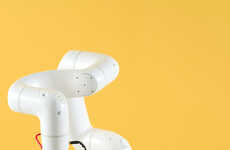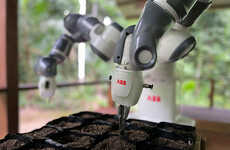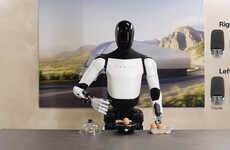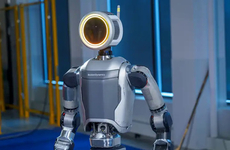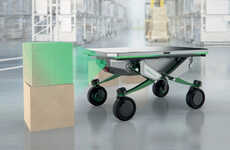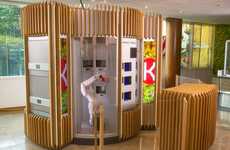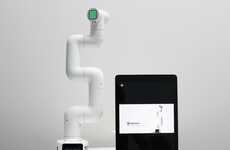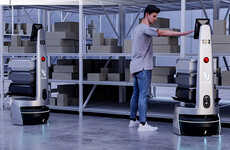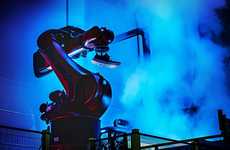
Ford's Assembly Plants Have Humans and Kuka Robots Work Side-by-Side
Laura McQuarrie — July 14, 2016 — Autos
References: media.ford & techcrunch
The rise of automation often causes people to fear that the jobs they do will soon be replaced by a robot, but Ford, its employees and Kuka robots show that man and machine can work together in harmony. Ford calls its Kuka robots "co-bots," which are used in assembly line work to help fit heavy shock absorbers onto Fiesta cars.
The humorous video showing how Ford employees and Kuka robots collaborate also shows that these highly adaptable robots can be programmed to carry out other tasks, such as making coffee or giving head massages.
The trial that Ford is currently running with these industrial robots at its assembly plant in Cologne, Germany is reportedly part of its exploration into 'Industry 4.0 Automation.'
The humorous video showing how Ford employees and Kuka robots collaborate also shows that these highly adaptable robots can be programmed to carry out other tasks, such as making coffee or giving head massages.
The trial that Ford is currently running with these industrial robots at its assembly plant in Cologne, Germany is reportedly part of its exploration into 'Industry 4.0 Automation.'
Trend Themes
1. Symbiotic Assembly Robots - The trend of using collaborative robots in assembly line work to enhance human-robot cooperation and efficiency.
2. Industry 4.0 Automation - The trend of incorporating advanced automation systems in manufacturing and production processes, driven by the adoption of smart and connected technologies.
3. Adaptive Industrial Robots - The trend of deploying flexible and highly adaptable industrial robots that can be programmed to carry out multiple tasks alongside human workers.
Industry Implications
1. Automotive Manufacturing - The automotive industry can integrate collaborative robots to enhance productivity, automate assembly lines, and ensure quality control and worker safety.
2. Robotics and Automation Industry - The robotics and automation industry can capitalize on the trend of symbiotic assembly robots by designing and manufacturing flexible and safe co-bots that can collaborate with humans in different settings and contexts.
3. Technology and Electronics Manufacturing - The technology and electronics manufacturing sector can benefit from adaptive industrial robots in designing, testing, and assembling complex and customized products that require human-level dexterity and accuracy.
0.7
Score
Popularity
Activity
Freshness

